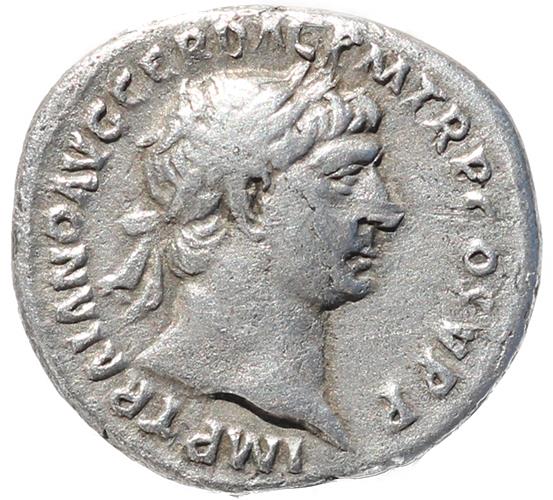Citizens of....
 |
| A Roman coin, representing the national or imperial identity of all the people of Rome |
Citizenship in Rome and in Heaven
"Only let your manner of life be worthy [act as citizens] of the Gospel of Christ, so that whether I come and see you or am absent, I may hear of you that you are standing firm in on spirit, with one mind striving side by side for the faith of the Gospel"- Phillipians 1:27 ESVThese words were from a man sitting in a prison cell (maybe house arrest) for crimes he didn't commit. His name was the Apostle Paul. Paul was writing a personal letter to all the Christians in the city of Philippi, giving them many practical encouragements as he waited for a trial before the Emperor of Rome (or his bureaucratic support).
As a citizen of the Roman Empire, Paul had many special legal privileges, among them the ability to request a trial in front of the Office of Caesar (Acts 25:11). In the Roman Empire, citizenship was a special privilege- among the peoples of Rome there were citizens, slaves and others. Millions of people did not have full legal citizenship. While Paul was a citizen of Rome, he told the Christians in Philippi that,
"Our citizenship is in Heaven, and from it we await a Savior, the Lord Jesus Christ"and in his letter to the Christians in Ephesus,
"So then you are no longer strangers and aliens, but are fellow citizens of the saints and of the household of God"
Citizenly Behavior
For Paul, his ultimate concern was not allegiance to Rome, but an allegiance to God. In the preceding paragraphs in his letter to the Ephesian Christians, Paul took the time to describe how people become "citizens of Heaven". The concept of citizenship and how that played in Roman times is very important to understanding the full range of meaning when Paul tells people to "live a worthy life".In Phil 1:27 the phrase "your manner of life" is the same Greek word that means "behave as a citizen". The Expositor's Greek Bible commentary points out that,
"The word seems gradually to have lost its original sense of life in a community, and came to mean simply 'live' or 'behave'. But probably a shade of its original significance often survives as here, to live as directed by certain regulations, certain laws."
It is difficult to say with certainty (and I certainly cannot claim to be a Greek expert!) if "manner of life" should be translate to "behave as a citizen of"- this is a major feature of the current dialogue concerning this verse. Regardless if this translation is appropriate, the meaning is still somewhat the same- in the same way that a citizen fulfill certain duties and ideals of their nation, so should Christians seek to behave according to the standards of the Gospel.
Jesus, the Living Constitution
At a recent conference I went to, one of this papers presented a fascinating concept- Jesus could be understood as a "living constitution", a real-life embodiment of the Gospel and thus the model in which Christians should imitate. The presenter's idea was based upon the relationship of Phil 2:1-11 (commonly called the Christ hymn) and the potential meaning of the citizenship metaphor in Greco-Roman thought.If this expansion of the metaphor to say Jesus is the living constitution is accurate, this gives a whole new depth of meaning to what a citizen is. A citizen should seek to follow the laws and principles put forth in their nation's central document- its constitution. If Jesus is the constitution, then Christians should earnestly strive to carefully follow (and not violate) all the principles of Jesus life. In Philippians specifically, this is Jesus' humility and selflessness.
Behavior Apart from the World
Paul tells the Philippian Christians to be a citizen for two specific reasons:
- To rejoice in suffering
- To live differently than the world
Paul opens his letter by describing his own suffering in his confinement. In sorrow, Paul is unable to visit the Philippian Christians in person, but hopes to hear that they have good character. Therefore he says, "only"- meaning "because of my suffering....", behave in a way that is according the Gospel. Perhaps one of most profound and scariest statements of his whole letter is verse 29,
"For it has been granted to you that for the sake of Christ you should not only believe in him but also suffer for his sake"
To say that is granted for Christians to believe and suffer literally means, belief and suffering are gifts. Paul suffered, Jesus suffered and so Christians should consider it a gift to suffer, almost as if it is a legal privilege of Gospel citizenship.
Finally, Paul tells them to behave according to Jesus behavior, in order to act differently from the world. Paul tells Christians "not to fear" like those who oppose the Gospel (Phil 1:28). When Paul tells them that their citizenship is from Heaven (Phil 3:20) he says this in contrast to the indulgence and licentiousness of non-believers (Phil 3:18-19). "The world acts this way, but you should act this way since you are a citizen of Heaven".
Where you are from and allied to matters. In a world full of patriotism and national pride we seek to imitate the qualities of a model citizen and represent our nation well to others. We should have the same attitude with Jesus- act humbly without selfish ambition, have joy when suffering and do not act the way the world does. In the end all of our legal privileges don't come from this world- but from God's unseen kingdom.


Comments